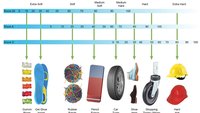I'm a tad confused by this post, and I think it may be from my ignornace of the HST. I do agree that value add taxes are beneficial overall, pay-per use taxes are as well.
Does the HST get rid of taxation during in the production cycle? If so, then yes we will likely see a decrease in product wholesale pricing. If not then this can only do harm; this was proved in Japan in the late 90s, when their economy was in the tank the government created a new harmonizing tax but the production cycle taxes still existed. It is blamed as a contributer of Japan's economy taking even longer to take off.
P.S. The auto industry is likley the most heavily subsidized industry in the world (no roads built by tax dollars, then no cars will be bought). Just food for thought.
From an economist's point of view, value added taxation such as the HST spurs investment, and makes it easier for any business to function. This in turn helps create jobs as companies, yes even small mom and pop shops, do not have to pay taxes on the inputs to their business. This creates slightly lower prices for a business to pay for their goods. Lower input prices can either be passed on to the end consumer or kept by the business as profit.
In either case this is a win. If a business keeps the extra profit, they will be more likely to survive, thrive and create more net economic benefit by creating more jobs and paying more income tax as their business grows. If they give it back to the consumer, the consumer benefits at the point of sale. Good for all.
(Note that income tax is not a value added tax. Reducing income taxes and putting in place value added tax creates an increase in economic activity all things equal.)
The PST is not a value added tax as it taxes inputs along the value chain (which means that the end use consumer actually pays far more than the 7% on the end product as that in the production of that product PST was paid on all the inputs. In other words the end use consumer is actually paying PST on PST, on PST etc.), and subsidizes some industries (like bikes and restaurants) while it does not subsidize others. This is patently unfair to those businesses who do not sell goods that have an exemption. A value added tax does not subsidize and therefore makes a business succeed on its own.
If a business only succeeded because of a subsidization, then maybe it should not be in business in the first place.
The HST will create a level playing field among all business and will spur investment in the province which will have net benefits to all constituents.
Whining about the HST is short sighted and neglects to see the larger benefit to the economy. As a province, we need to remain competitive with other jurisdictions. This is one method to do so.
Start the flames…….







